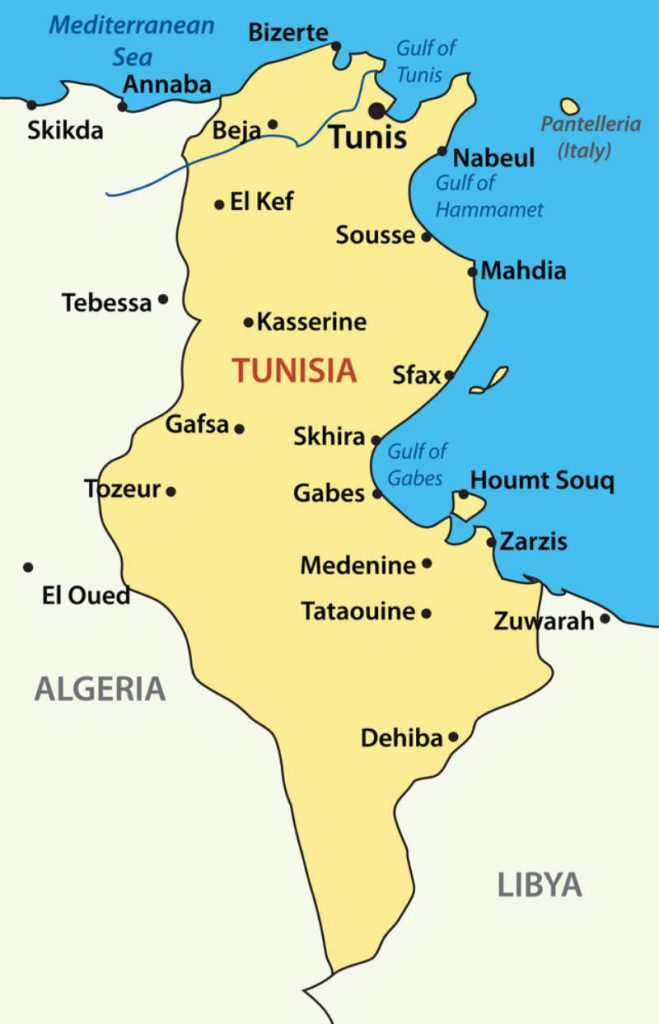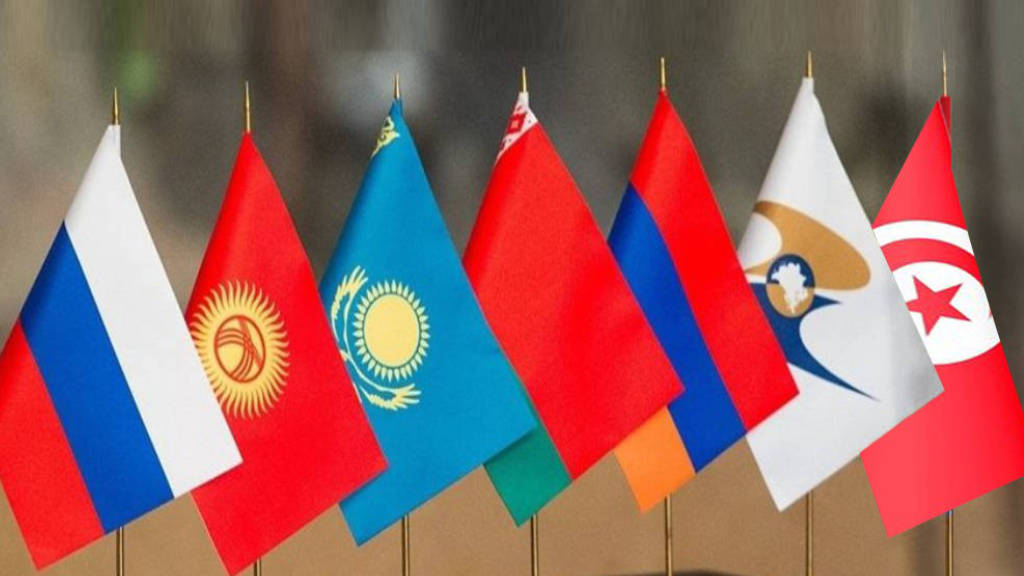The Eurasian Economic Commission (EEC), the regulatory authority of the Eurasian Economic Union (EAEU) and the government of Tunisia have set up a working group to explore the feasibility of concluding a free trade agreement, the EEC trade department reported following a meeting between EEC Trade Minister Andrei Slepnev and Tunisian Trade and Export Development Minister Samir Abid. The EAEU includes Russia along with Armenia, Belarus, Kazakhstan and Kyrgyzstan.
Slepnev aid that “The EAEU attaches a lot of significance to developing mutually beneficial relations with Africa and sees good prospects in expanding the number of regional countries with which preferential trade regimes are applied. We view Tunisia as a priority partner, attaching special importance to broadening trade and economic cooperation between our states. Based on the meeting’s outcomes, the parties agreed to initiate the process of putting together a joint research team to study the feasibility of concluding a free trade agreement between the EAEU and Tunisia.”
Among African countries, the EAEU is currently negotiating a free trade agreement with Egypt, having conducted six negotiating rounds on the matter, the EEC said.

The trade turnover between the two countries has been growing over the past two years. The volume of Russian exports to Tunisia for the first ten months of 2023 increased by 67.3% percent compared to the same period in 2022.
Moscow’s influence is set to expand further after a cooperation agreement was signed between the Russian Union of Industrialists and Entrepreneurs and the Tunisian Union of Industry, Commerce, and Handicrafts. The recent establishment of the Tunisian-Russian Business Council will also give the Kremlin added influence, while similar to Morocco, Russia also now plays a crucial role in Tunisia’s food security. Tunis has become increasingly concerned with this matter, as around three million Tunisians, more than a quarter of its entire population, do not have access to adequate food and water supplies despite its historical ties to France.
To the Tunisia’s west, Algeria has become a BRICS Partner state, and is a member of the BRICS New Development Bank, while to the east, Libya has applied to join the same bloc.
Increasing wheat and cereal supplies was the key topic of discussion during Russia-Tunisia bilateral talks in Moscow in September 2023, while in the second half of last year, Russia exported 412,000 tons of cereals, including wheat (66% of which was soft wheat) and barley. That amount represented a record for Russian exports to Tunisia, up 48% compared to all imports for 2022.
In 2021, Russia was only Tunisia’s seventeenth supplier, but in 2023 it rose to sixth place, highlighting growing supply chain development. These trends are continuing.
Further Reading
Africa and the 2024 BRICS Summit: Executive Summary

 Русский
Русский













